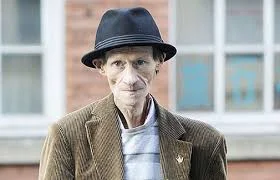Margaret Thatcher is dead
Apr 8, 2013
"They say we knew where we were with Margaret Thatcher. Yeah, we knew where we were with Margaret Thatcher. We were fucked." ALEXEI SAYLE
MARGARET THATCHER - scourge of the Left, defender of the Falklands, snatcher of milk - has died at the age of 87. An outmoded sense of socialist solidarity tells me that I should continue to despise her and everything she stood for, and that I should call for her corpse to be wrapped in a binbag and flushed into the sewer, but for the moment I find it enormously hard to do so. Still, reading the obituaries and listening to the tributes of the commentariat, all the poisonous memories start to flood back: the Falklands, Westland Helicopters, Keith Joseph, Nicholas Ridley, PC Keith Blakelock, Greenham Common, the Brixton riots, Leon Brittan, Alan Walters, that irksomely self-satisfied there is no alternative speech, Arthur Scargill, Kenneth Baker, the IRA, elderly "stalking horses", and so on and so on, and the way she dwindled towards her demise through things like the community charge and John Selwyn Gummer.
These dominant phrases and names and moments from my youth seem to bring back all the squalour of the times, where a sort of moral impoverishment was presided over by a bizarre, mad-eyed neighbourhood-watch busybody. By the time she was forced to resign in 1990, I rejoiced. I said I would dance on her grave. I said that I despised what she did to the crumbling industrial heartlands on the north, and the license she gave to the wideboys and yuppies in the City. She was the worst kind of suburban Poujadist and we were lucky she wasn't able to do more damage than she actually did.
By now, I think we were somehow encouraged to blame a Tory government for everything that had gone wrong. That doesn't seem right now. I couldn't possibly envisage the circumstances in which a caring, left-of-centre Labour government (1979-89) would have somehow done a better job.
In the day of her death, there have been few discordant voices to speak of. Beyond all the de mortuis nil nisi bonum pieties, I hear only Gerry Adams strike a contrary note, saying she was enormously destructive politician who did a lot of harm. The best obituary of Nixon was written by Hunter S. Thompson. Thatcher's career needs its own proper hatchet job.
2.
A DAY after her death, my ambivalence grows: I find it amusing to contemplate the street parties in Brixton and Glasgow as Britain's underclass rejoices in her death, but my heart isn't really in it anymore. Even the grating, whining noise of her miserable and utterly humourless speeches replayed endlessly over the past couple of days has failed to stir the old hatreds. In the end, she knew she was right, and perhaps she was right, but being right doesn't always justify the suffering. There are kinder and more emollient ways to be right, none of which she ever seemed to consider because of her ideological zeal and her overwhelming desire to abjure Heath-like U-turns.
It must be odd to be a leader, and odder actually to want to be one. Is there such thing as an ambition to do good, or is the good - however it is interpreted - merely an accidental byproduct of the ambition itself? Good, as Thatcher herself has proved, is pretty subjective. I heard Roy Hattersley being interviewed on one of the interminable BBC tribute programmes to the Lederene, and he said that while he disagreed with virtually everything she stood for, he admired the courage and conviction and drive with which she sought to implement her vision and transform her world. This made it seem as if making one's mark was the sole criterion on which to judge a leader, regardless of what sort of mark it was.
Can you separate the conviction politician from the nature of that conviction? Is it all about existentialist good faith and authenticity, regardless of what you actually have your good faith in? This was the sort of moral mess that a number of German historians got into a couple of decades ago when they began debating whether or not Hitler was objectively a "great" leader, regardless of the evils he perpetrated.
At the same time, does anyone really go into politics not to make a mark, not to have the courage of his or her convictions, not to implement a vision or change the world for the better? Why do some fail and others succeed? Is it all about personality, or mere luck? For Thatcher, the abiding feeling is that she would not have got away with even half of her policies were it not for the jackpot of North Sea oil, which her government squandered on dole payments and tax cuts.
3.
TWO DAYS after her death, and the news continues to be dominated by her demise. Some of the commentaries seemed to focus on the idea of unintended consequences: that she unleashed forces that undermined everything she believed, shattering all the unifying traditions of British society and leaving a country utterly dominated by meretricious wealth and philistine high finance, by casinos and scams and Lamborghinis. Still, there was no sign that she was unduly troubled by any of this, or that she disapproved of the sort of chancers that her policies had inadvertantly empowered - including her risible and morally degenerate son, Mark.
Left-wing magazine Counterpunch said today that she was basically a frontman for an international banking putsch, preaching some hokey old notions of self-reliance while using all the powers at her disposal to remove any vestiges of resistance to the likes of Goldman Sachs. Whether she meant to or not, she destroyed a lot of old social fabrics and vestments, a lot of the old communal spirits and the sense of shared values, and left virtually nothing but ugly naked Capital in their place.






